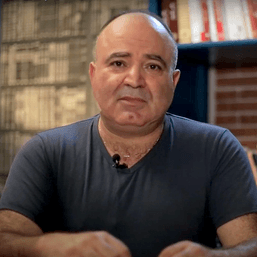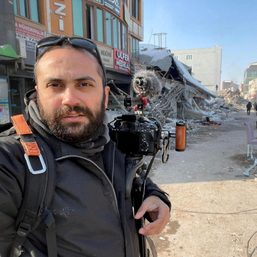SUMMARY
This is AI generated summarization, which may have errors. For context, always refer to the full article.

MANILA, Philippines – Research by the United Nations Educational, Scientific, and Cultural Organization (UNESCO) showed that the imprisonment of journalists worldwide has reached “record highs.”
In recent years, “arbitrary detention” and jail time are the methods that governments have increasingly employed.
The findings on the current landscape of journalists’ safety were part of UNESCO’s “World Trends in Freedom of Expression and Media Development 2021/2022” launched on Thursday, March 10.
The report studies threats that journalists and the media industry continue to face and how these have evolved since 2016. The study focused on three areas, namely: the “safety of journalists, freedom of the press and information, and economic viability of the media.”
New analysis from UNESCO found that, “globally, journalist imprisonment is inversely related to journalist killings: even as journalist killings decline, imprisonments are on the rise.”
UNESCO’s findings were based on data collected by the Committee to Protect Journalists (CPJ) on the imprisonment of journalists. In 2020, at least 280 cases of imprisoned journalists were recorded – the highest in nearly three decades, or since 1992. These included 184 journalists or 67% who were jailed on “anti-state” charges, as well as 12% or 34 who were detained on “fake news” charges.
The group noted similar “historically high levels” of imprisoned media workers were reported by Reporters Without Borders (RSF), which also tracked the detention of “media support staff.” RSF data counted 389 cases of jailed media workers in 2019 and 387 in 2020.
RSF had reported that 61% of journalists imprisoned as of December 2020 were held in just five countries in Asia and the Pacific and in Arab regions.
“Arbitrary detention is a continuing threat for journalists around the world,” UNESCO said. The group noted that detention is arbitrary “when it does not conform to existing national laws, or when it is deemed unjust or unnecessary.”
It added: “The conditions in which journalists are detained have led both CPJ and RSF to report instances of mistreatment, negligence, and sometimes torture…. A number of journalists have died while imprisoned, sparking calls for further investigations from UNESCO and other international bodies and free speech advocates.”
In the Philippines, Rappler CEO Maria Ressa was arrested in February 2019 over a cyber libel complaint filed by businessman Wilfredo Keng five years after a story was published on May 29, 2012, or months before the cybercrime law was enacted.
Ressa and Rappler continue to exhaust legal remedies in higher courts. Meanwhile, Ressa faces seven other charges before the Court of Tax Appeals and the Pasig City Regional Trial Court, stemming from the mother case over the company’s Philippine Depositary Receipets, which the Court of Appeals (CA) has ruled to be already cured.
Journalists killings decline, but many deaths unresolved
UNESCO’s report also found that while journalists’ imprisonment has climbed, killings of journalists have decreased over time. They noted, however, that variations in the number of killings were a result of changes in “just a few countries.”
“In some regions, the decrease in journalist killings is partially attributable to fewer killings in countries experiencing armed conflict,” it said.
Detailed figures likewise showed that while journalist killings have nearly halved in some regions like Africa, the Arab region, and Central and Eastern Europe, it has increased in regions including Asia and the Pacific, Latin America and the Caribbean, and Western Europe and North America.
Meanwhile, the group said, “Original UNESCO analysis further confirms that those countries that register higher numbers of journalist killings typically report low numbers of imprisonment, and vice versa.”
UNESCO underscored that when observing this relationship, it should be recalled that killings are “often – though not always – carried out by non-state actors or occur in countries experiencing armed conflict.”
Despite the decrease in killings, UNESCO said that journalism remained a “deadly profession.” Between 2016 and 2021, the group reported 455 journalists were either killed for their work or while on the job.
It also found that in “nine times out of ten, the murder of a journalist is unresolved.”
The groups added, “This research also confirms that where the number of journalist killings is high, so too is impunity for these killings, threatening a continued cycle of violence as lethal crimes against journalists often go unpunished.”
In majority of cases, the group noted that cases of killings and imprisonment of journalists were often alleged in “fewer than two dozen countries.”
Still, UNESCO said, “The rise and stagnation of imprisonment numbers signals that there could be increasing repression of press freedom in several regions, even as the decline in killings sparks hope for progress in journalist safety.”
Meanwhile, the group underscored how findings on trends regarding the safety or journalists likewise impacted access to “information as a public good.”
“The past five years…show the importance of considering other rising levels of threat against the safety of journalists, threats which not only violate press freedom and the right to free expression, but can also harm and intimidate journalists in ways that impact negatively on their ability to keep the public informed,” it said. – Rappler.com
Add a comment
How does this make you feel?





There are no comments yet. Add your comment to start the conversation.